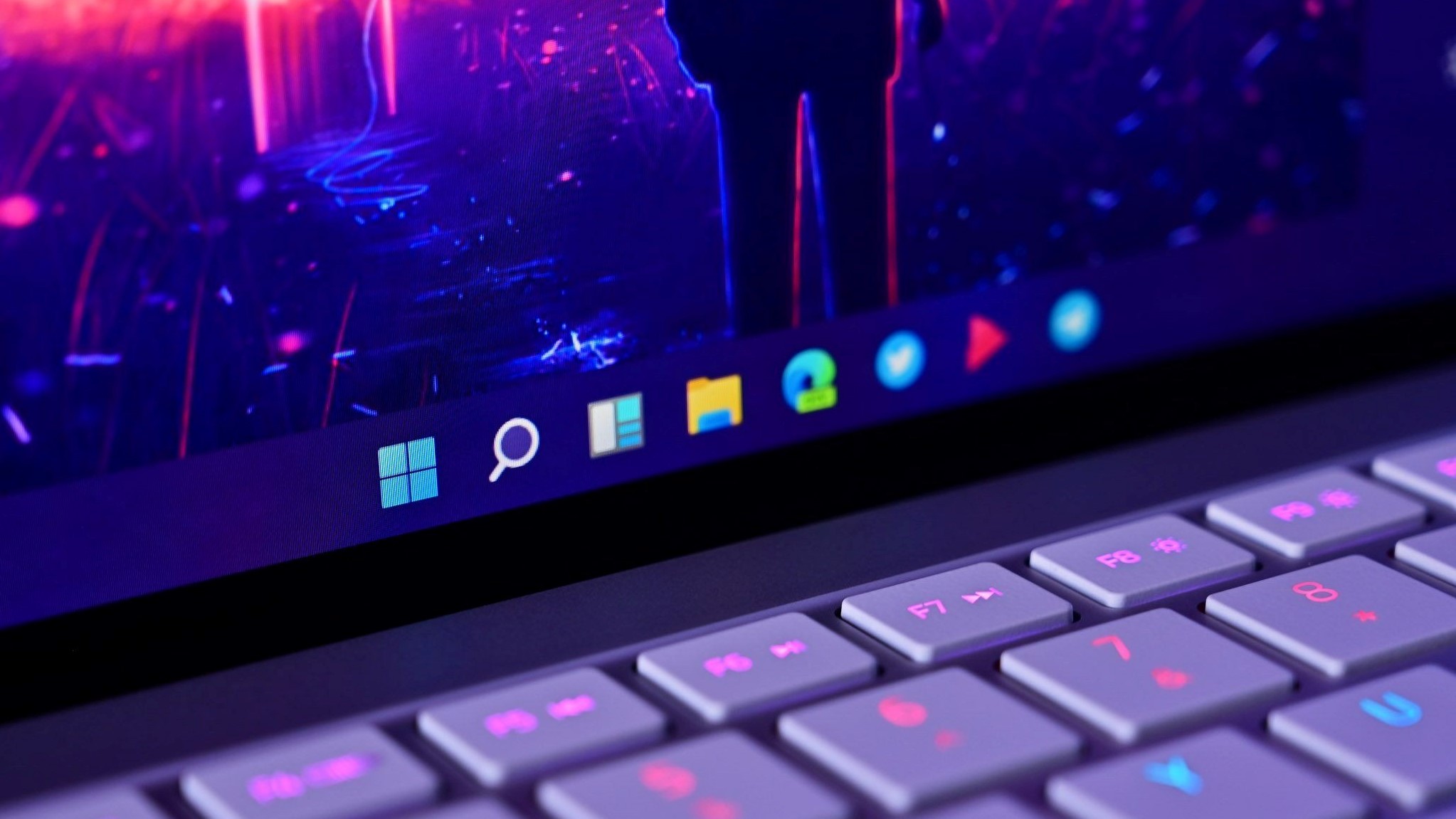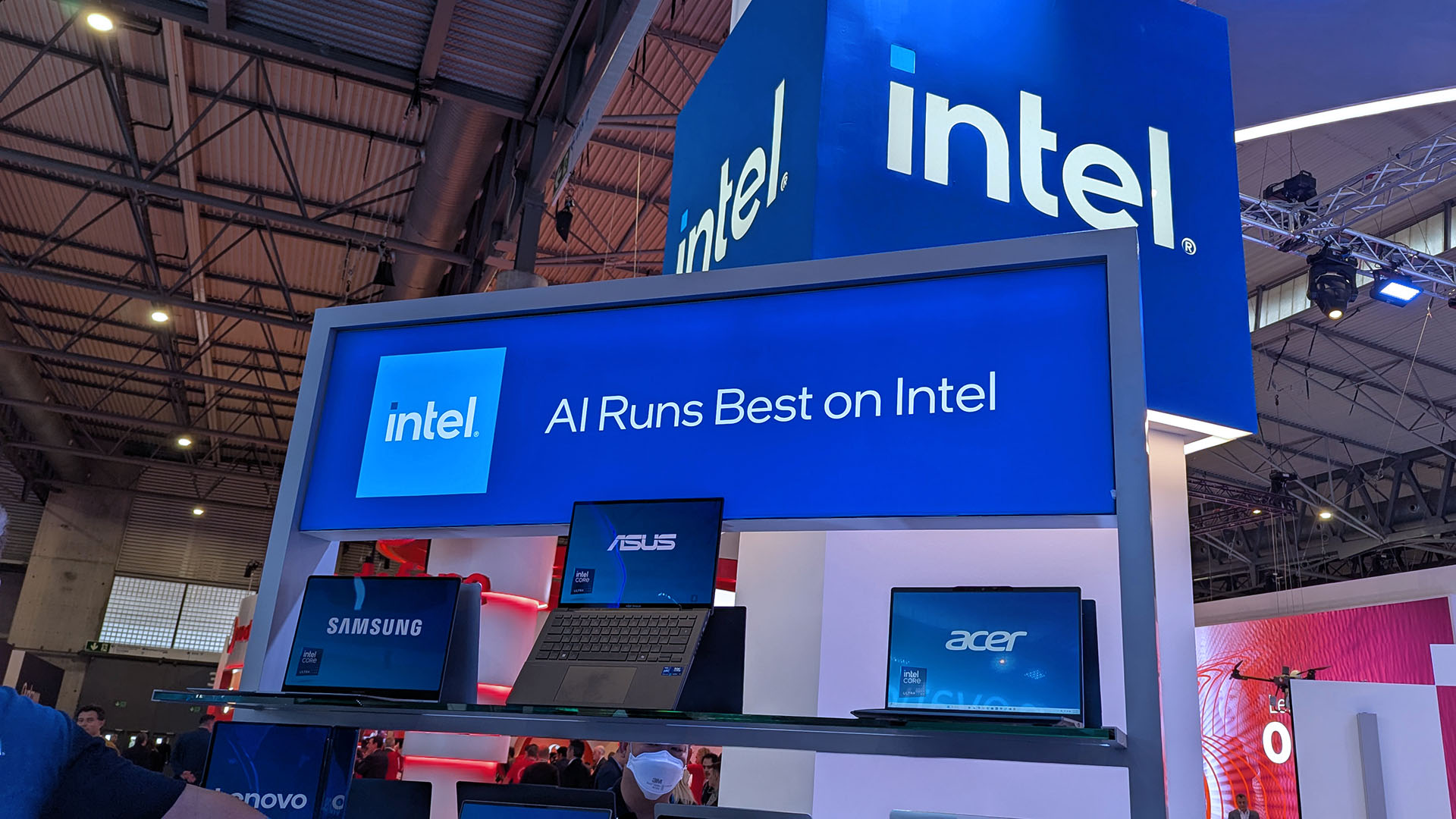Microsoft doubles down on Windows 11 — calls for major Copilot+ PC upgrade cycle in 2025
The company expects 70% of consumers running Windows 10 to switch to Windows 11 within the next two years.

Microsoft is gearing up for a big Windows upgrade year as Windows 10 reaches end-of-life in just 10 short months. In a new blog post published today, Microsoft has reaffirmed its commitment to Windows 11 and Copilot+ PCs and is encouraging all Windows 10 users to move to Windows 11 this year.
"All of the innovation arriving on new Windows 11 PCs is coming at an important time," says Yusef Mehdi, Microsoft's Executive Vice President and Consumer Chief Marketing Officer, recapping the launch of Copilot+ PCs and features. "Windows 10 will reach the end of its lifecycle on Oct. 14, 2025. After this date, Windows 10 PCs will no longer receive security or feature updates, and our focus is on helping customers stay protected by moving to modern new PCs running Windows 11."
According to Microsoft, almost 80% of businesses running Windows 10 are planning to upgrade to new Windows 11 hardware by the end of the year, and it expects around 70% of consumers to do the same within the next 24 months. If true, that will boost Windows 11's market share significantly, making it the dominant desktop operating system.
2024 was a huge year for Windows 11. It introduced Copilot+ PCs to the world, which Microsoft calls a new category of Windows device that is capable of exclusive AI features. Our Editor in Chief, Daniel Rubino, went so far as to call it a "Great Reset" for the foundations of the Windows ecosystem.
It's clear that Microsoft views 2025 as an important milestone for Windows 11, as it will be the year where it (ideally) overtakes Windows 10 as the most used version of Windows. Microsoft will need to ensure Windows 11 is in a stable and positive position so as not to scare away potential upgraders.
Because of this, it's unlikely that we'll see a major Windows product release this year. Windows 11 is the current focus for Microsoft, and it wouldn't make much sense to introduce a "Windows 12" to the market while it's trying to get Windows 10 users to upgrade to Windows 11. Instead, we'll likely see a continuation of what we've seen in recent months: AI features and quality-of-life improvements added to the familiar Windows 11 user experience via continuous updates.
"As the world moves with us to Windows 11, we will welcome them with new features, enhanced security, improved functionality, and the familiar Windows experience they know and love," says Mehdi.
Get the Windows Central Newsletter
All the latest news, reviews, and guides for Windows and Xbox diehards.
Last year, Microsoft made big improvements to the Windows platform with the Windows 11 version 24H2 update, which is what the LTSC version of Windows 11 is now based on. I'd be surprised if Windows 11 version 25H2, coming later this year, isn't also based on this platform release.
Microsoft's blog post also highlights CES 2025 and new Windows 11 PCs coming from hardware makers with Copilot+ capabilities. It also highlights the work its silicon partners are doing to enable Copilot+ features from the likes of Qualcomm, Intel, AMD, and NVIDIA. It's clear that Microsoft is heavily focused on pushing Copilot+ capable hardware going forward.
I am expecting Microsoft to take the wraps off a second wave of Surface Copilot+ hardware in the next couple of months, which includes new Intel Lunar Lake-powered Surface PCs and smaller 11-inch Arm-powered devices, too.

-
computerdave911 we need windows 12 by then as windows 10 is better than 11, so many things in 11 takes 3 clicks instead of 2,, hate thatReply -
GraniteStateColin Replycomputerdave911 said:we need windows 12 by then as windows 10 is better than 11, so many things in 11 takes 3 clicks instead of 2,, hate that
In general, I prefer Windows 11 to 10. Most things it does better and it's a more polished-looking OS. I do miss the Live Tiles and more configurable Start menu, but I accept I'm in the minority on that and that very few users configured it (of course, with no way to put Live Tiles on the Desktop, which would have been the equivalent to the mobile Home Screen, of course they failed to appeal to Windows users).
However, one place where I strongly agree with you and serves as a daily pain point for me with Windows 11 is the lack of Jump Lists in the Start menu for pinned apps. I have dozens of apps where I need rapid access to a handful of key or recent documents. Those can't all be pinned to the Taskbar: it's not long enough, even on a 4K monitor, and even if it were, Taskbar lacks the organization capabilities of Start with its folders so I can group different app types.
Now, with these breaking changes to Start in Windows 11, I have to launch from Start, wait for the app to open, then right-click on the app that appears in the Taskbar to get at its Jump List (or pin the individual documents to Start, which I have done in a few cases, but that's goofy, doesn't work for recent docs, and is also inefficient in its own way). Given that there are Jump Lists for apps in Start, but only under All Apps rather than pinned, this is insane. You pin an app for fast access... but you can only fast-access the documents for apps that are not pinned? WTF!?
Still, in spite of this serious failing for me, Windows 11 is far better overall than Windows 10. If they would just address the missing Jump Lists for pinned apps... -
smartin559 With the growing list of deadly bugs in Windows 11 24H2 I'm betting many more Windows 10 users, including enterprises, will double down on staying on 10. Microsoft screwed the pooch on 24H2 and users are really getting frustrated with it's lack of progress in fixing the problems.Reply -
GraniteStateColin Replysmartin559 said:With the growing list of deadly bugs in Windows 11 24H2 I'm betting many more Windows 10 users, including enterprises, will double down on staying on 10. Microsoft screwed the pooch on 24H2 and users are really getting frustrated with it's lack of progress in fixing the problems.
I think you may be applying your personal perspective here or rumors from anti-Win 11 people. I just checked and it looks like 24H2, while definitely introducing some bugs, as all updates do, has generally been cleaner than most. Notably, I have not seen widespread reports of any critical problems.
Most of my computers didn't even show 24H2 as available until late December, which suggests MS was taking their time with the update and only pushing it to hardware and software combinations that they had tested and appeared not to pose problems. I have only had issues with 24H2 that I know of on one system across many different computers: in the known issues list as "Camera use might cause some applications to become unresponsive," but in my case, the only impacted feature is Windows Hello, where it's not properly scanning and unlocking Windows on some HP laptops, but only after they've been running for many hours or days (which is probably why MS missed it). But also found an easy temporary fix:
"EnableFrameServerMode"=dword:00000000
Have had no problems since adding that to the registry.
Here's the list of major regressions acknowledged by MS and their status in working through them: https://learn.microsoft.com/en-us/windows/release-health/status-windows-11-24h2 -
smartin559 Reply
I fear you miss the fact that personal experience, and reading of others experiences IS a valid experience! In fact, there are many issues that have only recently been discovered, and more every week. MS has "screwed the pooch" and I don't even think their engineers have found the root cause of the problems they caused with this update.GraniteStateColin said:I think you may be applying your personal perspective here or rumors from anti-Win 11 people. I just checked and it looks like 24H2, while definitely introducing some bugs, as all updates do, has generally been cleaner than most. Notably, I have not seen widespread reports of any critical problems.
Most of my computers didn't even show 24H2 as available until late December, which suggests MS was taking their time with the update and only pushing it to hardware and software combinations that they had tested and appeared not to pose problems. I have only had issues with 24H2 that I know of on one system across many different computers: in the known issues list as "Camera use might cause some applications to become unresponsive," but in my case, the only impacted feature is Windows Hello, where it's not properly scanning and unlocking Windows on some HP laptops, but only after they've been running for many hours or days (which is probably why MS missed it). But also found an easy temporary fix:
"EnableFrameServerMode"=dword:00000000
Have had no problems since adding that to the registry.
Here's the list of major regressions acknowledged by MS and their status in working through them: https://learn.microsoft.com/en-us/windows/release-health/status-windows-11-24h2
Just say no to crappy Operating Systems. Of which Windows 11 24H2 rates along side Windows Me. -
arm I got another Update for Windows 11 Version 24H2 for arm64 this morningReply
(thats 3 in the last 30 days) but all is well (& was for me) - glad msft is on top of things, I'm happy with 24H2 -
GraniteStateColin Replysmartin559 said:I fear you miss the fact that personal experience, and reading of others experiences IS a valid experience! In fact, there are many issues that have only recently been discovered, and more every week. MS has "screwed the pooch" and I don't even think their engineers have found the root cause of the problems they caused with this update.
Just say no to crappy Operating Systems. Of which Windows 11 24H2 rates along side Windows Me.
No, they're not. Those are anecdotes and should play zero role in company policy. That doesn't mean you shouldn't be able to get support if you're having a problem -- of course you should. But your ability to gain support when you're having a problem is different from suggesting that MS rolled out a defective update. That assessment would require a statistical analysis of the rollout and be based on the % of users adversely affected. By those objective metrics (rather than your anecdote), the update was a technical success with minimal issues (not zero, but minimal and less than many other prior updates).
I have plenty of gripes with MS for decisions and changes they made that have added more work to my day (but to be fair, most of their changes save me time), but when people complain over things that don't merit complaints and just hurl insults rather than provide data, you undermine the valid criticisms and make it harder for the rest of us to get actual problems addressed.
You may also ask this group for help if you are having a problem (or go to the official Windows support forum at https://answers.microsoft.com/en-us/windows). Instead of whining a non-actionable complaints like "MS screwed the pooch" and "Just say no to crappy Operation Systems," provide details on your problem, steps to reproduce, and ask for help with the problem you're having. Perhaps we can assist and fix it for you. -
Laura Knotek Reply
Gamers might feel differently. https://www.techradar.com/computing/windows/windows-11-24h2-is-in-danger-of-becoming-hated-by-gamers#:~:text=Windows%2011%2024H2%20is%20in%20danger%20of,problems%2C%20review%20bombing%20the%20game%20on%20Steam.GraniteStateColin said:No, they're not. Those are anecdotes and should play zero role in company policy. That doesn't mean you shouldn't be able to get support if you're having a problem -- of course you should. But your ability to gain support when you're having a problem is different from suggesting that MS rolled out a defective update. That assessment would require a statistical analysis of the rollout and be based on the % of users adversely affected. By those objective metrics (rather than your anecdote), the update was a technical success with minimal issues (not zero, but minimal and less than many other prior updates).
I have plenty of gripes with MS for decisions and changes they made that have added more work to my day (but to be fair, most of their changes save me time), but when people complain over things that don't merit complaints and just hurl insults rather than provide data, you undermine the valid criticisms and make it harder for the rest of us to get actual problems addressed.
You may also ask this group for help if you are having a problem (or go to the official Windows support forum at https://answers.microsoft.com/en-us/windows). Instead of whining a non-actionable complaints like "MS screwed the pooch" and "Just say no to crappy Operation Systems," provide details on your problem, steps to reproduce, and ask for help with the problem you're having. Perhaps we can assist and fix it for you. -
GraniteStateColin Reply
@Laura Knotek , great point. If there is statistically significant evidence that an entire group of people are experiencing a problem, which sounds like is the case for people trying to play Path of Exile 2 and Assassin’s Creed Origin (maybe only through Steam?) and these games worked before the update, then that would indeed be a problem with the update and something MS should be focused on fixing.Laura Knotek said:Gamers might feel differently. https://www.techradar.com/computing/windows/windows-11-24h2-is-in-danger-of-becoming-hated-by-gamers#:~:text=Windows 11 24H2 is in danger of,problems, review bombing the game on Steam.
I know that they try to only push the update to people with already tested hardware and software. Do you know if those users are getting the update automatically, or if they opted to update early? Certainly possible they did get it automatically if MS hadn't realized there was a compatibility problem with those 2 games.
Note that's different from smartin559's post, where he's just screaming about "bad update" with no details to troubleshoot or to help identify the compatibility problem with his specific system.
